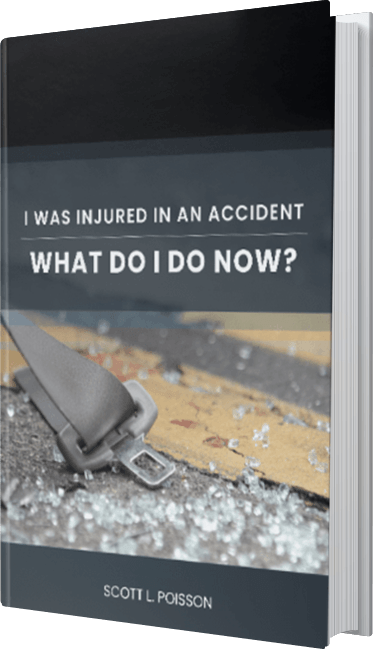How to Know if Your Car Insurance Company is Acting in Bad Faith
November 23, 2021
Drivers buy auto insurance policies as protection in case they are involved in a car crash. In return, they expect their insurance company will not act in bad faith and will fairly handle any claim that arises. However, what if you are in a crash and your claim is wrongly denied or not even properly investigated? How can policyholders know if their insurance company is acting in bad faith and breaking the law?
At High Stakes Injury Law, we have been representing injured victims in Las Vegas since 2007. Our firm has obtained more than 100 million in compensation for our clients. We have extensive experience dealing with insurance companies and know the tactics they may use to deny claims. After a crash, we are prepared to fully investigate your claim, including whether you may be a victim of bad faith insurance practices.
What Are Signs an Insurer May Be Acting in Bad Faith?
The auto insurance policy you purchased is considered a legal contract. If your insurance company breaches that contract in one or more ways, it may be considered an act of bad faith.
Some specific signs that may indicate your claim is being handled in bad faith includes:
Denying Your Claim Without Giving You a Reason
There are valid reasons an insurance company may deny your claim, such as if you failed to keep up with your premium payments and your insurance expired. However, regardless of whether the denial is valid, your insurer is required to give you a legitimate reason for the denial, and in writing. If your insurance company does not give you any reason, it could be a sign they are acting in bad faith.
Failing to Adequately Investigate Your Claim
Your insurance company has an obligation to fully investigate your claim before deciding about whether or not it is approved or denied.
Steps should include at a minimum:
- Investigating your claim without delay and before evidence is lost or no longer fresh
- Communicating with relevant parties, such as any witnesses, to learn more about what happened
- Properly analyzing any crash scene evidence or other factors that may impact the outcome of your claim
Failing to Communicate the Status of Your Claim
Even if some delays are necessary in an insurance claim, failing to communicate is not. Your insurance company is required to keep you informed about the status of your claim and to respond to you in a timely manner. Consistently failing to communicate with a policyholder is another potential sign your insurer may be acting in bad faith.
Deliberately Misusing Policy Language
Insurance policies are often written in confusing language, which can make it harder for policyholders to understand. Knowing this, an insurance company may intentionally misuse or misinterpret certain facts or aspects of the policy to their benefit.
Unreasonably Delaying Payment
Insurance companies know that delayed payments are painful to policyholders. When injured victims have medical bills and other financial burdens piling up after an accident, they may get desperate. Sometimes, injured victims may willingly accept any lowball offer just to get any amount of compensation sooner, even if it is far below the value of his or her claim.
Unfortunately, policyholders may not even know when their claim is being handled in bad faith. This is why it may greatly benefit you to have a qualified attorney looking out for your best interests. An experienced car crash lawyer knows what signs to look for and how to protect you from becoming a victim of bad faith practices.
Why Do Some Insurance Companies Act in Bad Faith?
Insurance companies operate as for-profit organizations. What this means for policyholders is that your insurer’s goal is to pay out as little as possible on your claim. Their goal is to protect their bottom line. Many insurance companies may engage in legal, but underhanded tactics to try to limit what they pay out. However, some insurance companies take this approach too far and may break the law in their attempts to deny or devalue a claim.
Often, policyholders who become a victim of a bad faith claim may just give up. This is ultimately what an insurance company in this situation may be hoping for because it lets them off the hook. However, a qualified attorney can help you understand your legal rights and protect your claim from bad faith insurance practices.
Seek Legal Help from a Trusted Law Firm
At High Stakes Injury Law, you can learn more about your legal rights in the free, no-obligation case review we offer. Our Las Vegas car accident lawyers are prepared to fully investigate what happened. If we determine you have been a victim of insurance bad faith, we are prepared to work hard to protect your interests. Our firm is committed to seeking full and fair compensation on your behalf.
Call our law firm anytime, night or day, to learn more. If you have a case and we represent you, there is nothing to pay up front or throughout the legal process. We are not paid our fees unless we win your case.
Get A 100% Free Case Evaluation
From A Top-Rated Personal Injury Attorney
Call: (702) 707-5934 or Contact Us Online
$9M
Settlement / Auto Accident
$5.1M
Settlement / Tire Explosion
$3M
Settlement / Truck Accident
01
02
03
04

I Was Injured In An Accident.
What Do I Do Now?
By Scott L. Poisson

Do I Have A Case?

Dealing With The Insurance Company

When a Lawsuit Is Filed

Overcoming Common Defense Themes

Special Considerations in Specific Types of Cases
